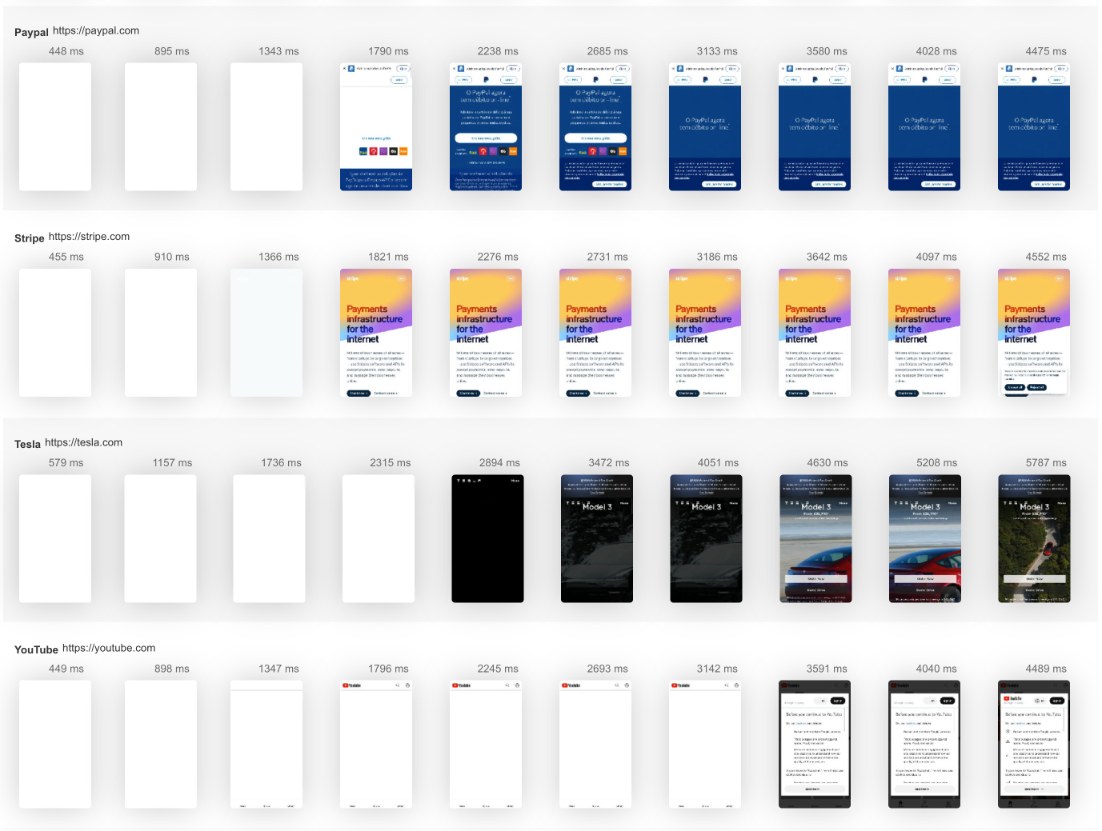Breakpoint Testing for Maximum User Connections on Web Servers
Breakpoint Testing for Maximum User Connections on Web Servers enables you to assess the point at which your web server reaches its maximum capacity to handle concurrent user connections without performance degradation. With thousands of virtual users running from over 26 cloud regions, this template ensures you accurately identify bottlenecks, optimize resource allocation, and maintain system reliability under extreme load.
What is Breakpoint Testing for Maximum User Connections?
Breakpoint Testing for Maximum User Connections involves pushing your web server to its limits by simulating increasingly high numbers of concurrent user connections. Using LoadFocus (LoadFocus Load Testing Service), this template allows you to identify when performance begins to degrade, helping you pinpoint the server’s capacity ceiling and plan for optimization or scaling.
This template provides detailed steps to define, execute, and analyze your breakpoint tests, ensuring your web server is prepared for peak demand scenarios.
How Does This Template Help?
This template offers structured workflows to configure your server under test, emulate real-world user behavior, and analyze performance metrics. It focuses on practical strategies to find your web server’s capacity threshold, equipping you to make informed decisions about upgrades or optimizations.
Why Do We Need Breakpoint Testing?
Understanding the limits of your web server is essential to avoid crashes or slowdowns during traffic surges. This template helps you proactively identify bottlenecks, plan for traffic spikes, and ensure an uninterrupted user experience even under extreme load conditions.
- Detect Capacity Limits: Know the exact number of concurrent users your server can handle.
- Plan for Scalability: Inform resource allocation and scaling strategies.
- Mitigate Downtime Risks: Ensure your web server can handle unexpected traffic surges.
How Breakpoint Testing Works
This template guides you through creating realistic load scenarios that incrementally increase concurrent users until the server reaches its limit. With LoadFocus, you can run these tests from over 26 cloud regions and monitor real-time performance metrics.
The Basics of This Template
The template includes predefined scenarios, metrics tracking, and alert configurations. LoadFocus simplifies testing with intuitive dashboards and actionable insights for each breakpoint test.
Key Components
1. Load Configuration
Define user increments and maximum thresholds based on expected traffic patterns.
2. User Behavior Simulation
Emulate realistic user actions, such as browsing, logging in, or data retrieval.
3. Metrics Collection
Track throughput, latency, error rates, and resource utilization to identify bottlenecks.
4. Alerts and Monitoring
Configure notifications to detect performance degradation in real-time.
5. Data Analysis
Analyze results to determine the server’s maximum user capacity and performance characteristics.
Visualizing Breakpoint Tests
Visualize performance metrics such as latency spikes and error rates as user counts increase. The template demonstrates how LoadFocus provides real-time dashboards for comprehensive insights.
Types of Breakpoint Tests
This template supports various load testing methods to understand server behavior under different scenarios.
Stress Testing
Push your server beyond its typical capacity to identify failure points.
Spike Testing
Simulate sudden surges in connections to evaluate resilience under peak loads.
Endurance Testing
Maintain high user loads over extended periods to detect long-term issues.
Scalability Testing
Gradually increase user load to assess your infrastructure’s scalability.
Volume Testing
Test how well your server handles large amounts of simultaneous requests.
Using LoadFocus for Breakpoint Testing
LoadFocus simplifies breakpoint testing by providing:
- Global Coverage: Run tests from over 26 cloud regions for accurate insights.
- Scalable User Simulation: Effortlessly configure thousands of concurrent virtual users.
- Real-Time Monitoring: Track performance metrics and server behavior during tests.
- Detailed Reporting: Analyze test results to pinpoint capacity and optimize performance.
Best Practices for This Template
- Simulate Real-World Scenarios: Include diverse user actions to reflect actual usage.
- Start Small: Begin with a smaller user count and increment gradually.
- Monitor Resource Utilization: Keep an eye on CPU, memory, and I/O during tests.
- Schedule Tests Wisely: Run tests during off-peak hours to minimize disruption.
- Automate Regularly: Integrate load tests into your CI/CD pipeline for continuous validation.
- Collaborate Across Teams: Share test results with all stakeholders.
Benefits of Using This Template
Proactive Issue Detection
Identify capacity bottlenecks before they affect real users.
Informed Decision-Making
Plan for scaling based on data-driven insights.
Improved Reliability
Ensure a consistent user experience under high traffic.
Optimized Resource Usage
Fine-tune configurations for better efficiency.
Getting Started
To begin using this template, follow these steps:
- Clone or Import the Template: Load it into your LoadFocus project.
- Define Test Parameters: Set the desired user increments and thresholds.
- Execute and Monitor: Run tests and monitor metrics in real-time.
Final Thoughts
Breakpoint Testing for Maximum User Connections on Web Servers is essential for maintaining performance and reliability under high demand. By leveraging this template and LoadFocus Load Testing, you can confidently identify server limits, plan for scalability, and ensure an uninterrupted user experience.
How fast is your website?
Elevate its speed and SEO seamlessly with our Free Speed Test.You deserve better testing services
Effortlessly load test websites, measure page speed, and monitor APIs with a single, cost-effective and user-friendly solution.Start for free→